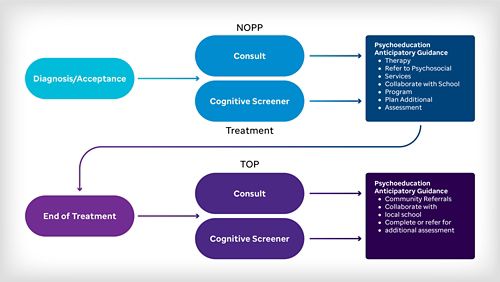St. Jude Family of Websites
Explore our cutting edge research, world-class patient care, career opportunities and more.
St. Jude Children's Research Hospital Home

- Fundraising
St. Jude Family of Websites
Explore our cutting edge research, world-class patient care, career opportunities and more.
St. Jude Children's Research Hospital Home

- Fundraising
The Department of Psychology and Biobehavioral Sciences provides integrated services throughout the care continuum for pediatric patients with catastrophic diseases and their families. Established, empirically supported approaches guide our provision of psychological clinical services.
Our clinical programming ensures a high standard of psychological care for all St. Jude patients, and we lead a number of interdisciplinary programs that facilitate specialized patient care.
Psychology Clinic
The Psychology Clinic provides a wide range of services to St. Jude patients and their families, including consultation, intervention, and psychological and neuropsychological assessment. Our faculty and staff meet with patients across all inpatient and outpatient settings.
Faculty include licensed pediatric psychologists and neuropsychologists and Master’s level psychological examiners and trainees at all levels, from graduate students through postdoctoral fellows.
In addition to targeted, empirically supported interventions that address emotional and behavioral concerns, supportive care is provided—particularly for patients and families with difficulties adjusting to diagnosis, treatment, relapse/recurrence, and/or end of life. The psychologists work closely with members of the medical and psychosocial teams to ensure that each patient receives the most effective and efficient multidisciplinary care.
Oncology programs
To support pediatric oncology patients and their families at the highly stressful times of diagnosis and end of therapy, the Department of Psychology provides assessment, intervention, and support at these two medical milestones in a patient’s care.
Hematology programs
Specialized programs
Psychosocial Services
Psychosocial Services at St. Jude takes an interdisciplinary approach to provide a comprehensive and highly integrated support network for patients and families. An array of professionals—including psychologists, social workers, chaplains, child life specialists, music therapists, teachers, nurse practitioners, and more—work collaboratively to provide high-quality psychological, social, developmental, and spiritual care for children with cancer and other catastrophic diseases.
Learn more about Psychosocial Services provided by St. Jude.


















